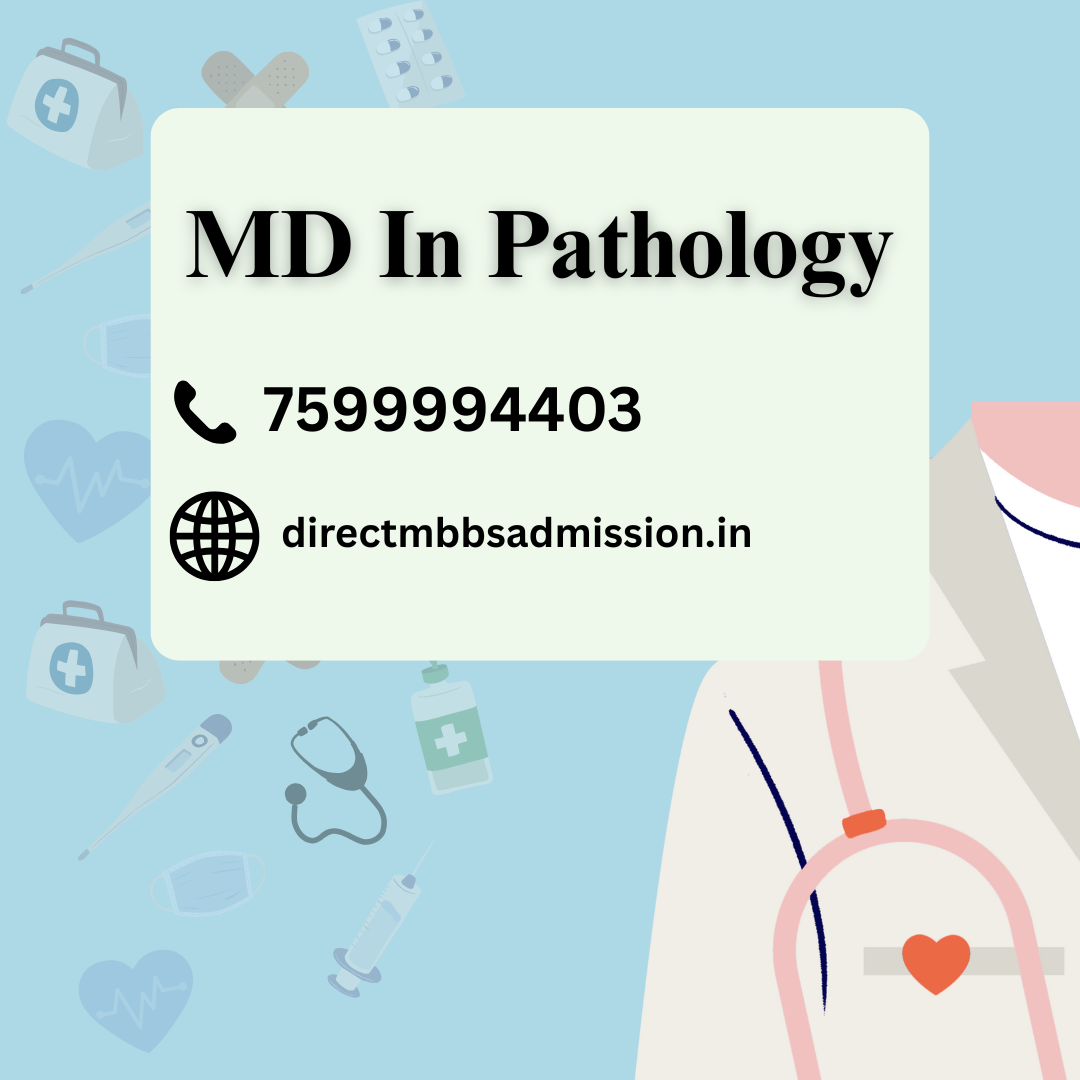MD in Pathology is one of the most essential and intellectually engaging postgraduate medical degrees. Pathology, often referred to as the “bridge” between basic science and clinical medicine, plays a pivotal role in diagnosing diseases, guiding treatment decisions, and advancing medical research. An MD in Pathology offers a deep understanding of disease mechanisms, tissue analysis, and laboratory medicine, making it an indispensable specialty in modern healthcare.
Pathology is the scientific study of diseases — their causes, development, structural changes, and effects on the body. As such, the role of a pathologist is to identify diseases by examining tissues, organs, bodily fluids, and autopsies. Although pathologists typically work behind the scenes, their work forms the backbone of nearly every medical diagnosis. The MD in Pathology program equips medical graduates with advanced knowledge and practical skills in the field, enabling them to work in clinical laboratories, hospitals, research institutions, and even academic settings.
The course duration for MD in Pathology is three years and is open to candidates who have completed their MBBS from a recognized medical institution. The curriculum includes both theoretical and practical training, covering areas like general pathology, systemic pathology, hematology, cytopathology, immunopathology, molecular diagnostics, and forensic pathology. Students are also trained in laboratory techniques, including staining, microscopy, histopathological examination, and autopsy procedures. Emphasis is placed on accurate diagnosis, reporting, and interpretation — all of which are critical in patient management and treatment.
One of the distinctive aspects of pathology is its scope and versatility. There are several sub-specialties within pathology, such as surgical pathology, clinical pathology, hematopathology, cytogenetics, neuropathology, and dermatopathology. Each offers unique insights into disease processes and requires specialized training. For instance, surgical pathology involves the examination of tissues removed during surgery to determine if a disease is present, while clinical pathology focuses on analyzing blood, urine, and other body fluids to diagnose systemic diseases.
During the MD course, students are exposed to a rigorous academic environment that includes seminars, case discussions, research work, and thesis writing. They often collaborate with clinicians to correlate clinical findings with pathological reports, enhancing their understanding of disease patterns. This interdepartmental interaction is crucial, as it nurtures the ability to offer precise and clinically relevant diagnostic opinions.
Career opportunities after completing MD in Pathology are both diverse and rewarding. Graduates can choose to work as consultants in hospitals, diagnostic labs, or start their own pathology labs. The demand for skilled pathologists continues to rise with the growth of personalized medicine, cancer diagnostics, and molecular pathology. Many also pursue fellowships or super-specialization in fields like oncopathology, renal pathology, or transplant pathology. Academic positions are also available for those interested in teaching and training future doctors.
In recent years, technological advancements have significantly transformed the practice of pathology. Digital pathology, artificial intelligence, and automation have enhanced diagnostic accuracy, turnaround times, and workflow efficiency. Pathologists today need to be well-versed not only in traditional diagnostic methods but also in emerging tools that support precision medicine. The MD program, therefore, incorporates training on newer diagnostic platforms, bioinformatics, and research methodology to keep students updated with global standards.
Research is another integral component of MD in Pathology. Students are encouraged to conduct original research, often leading to publications in peer-reviewed journals. These research projects contribute to scientific knowledge and may open doors to opportunities in academic and pharmaceutical research. Many pathologists eventually go on to lead diagnostic or research labs, driving innovation and contributing to advancements in disease diagnosis and management.
Despite being a non-clinical specialty in the traditional sense, pathology demands a high degree of clinical acumen and interpretive skills. Pathologists must remain constantly engaged with the latest medical literature, understand disease progression, and collaborate with clinicians to ensure that the diagnosis is both accurate and meaningful. Their ability to think critically, pay attention to detail, and make evidence-based conclusions is what makes them key players in patient care.
In terms of work-life balance, pathology is considered one of the more manageable medical specialties. It generally involves fixed working hours, minimal emergency duties, and less patient interaction, which some doctors prefer. This predictability, however, does not mean the job is less demanding. The responsibility of interpreting lab results accurately — which can profoundly affect a patient's treatment plan — is immense.
In conclusion, pursuing an MD in Pathology is an excellent choice for those with a keen interest in disease processes, laboratory medicine, and diagnostics. It offers a fulfilling career that blends scientific inquiry with clinical relevance. Whether you aspire to be a diagnostic expert, a researcher, or an educator, this field offers ample opportunities for growth, contribution, and innovation. In a healthcare system that increasingly relies on accurate, timely diagnoses, the role of a pathologist is not just behind the scenes — it's central to saving lives.





Comments